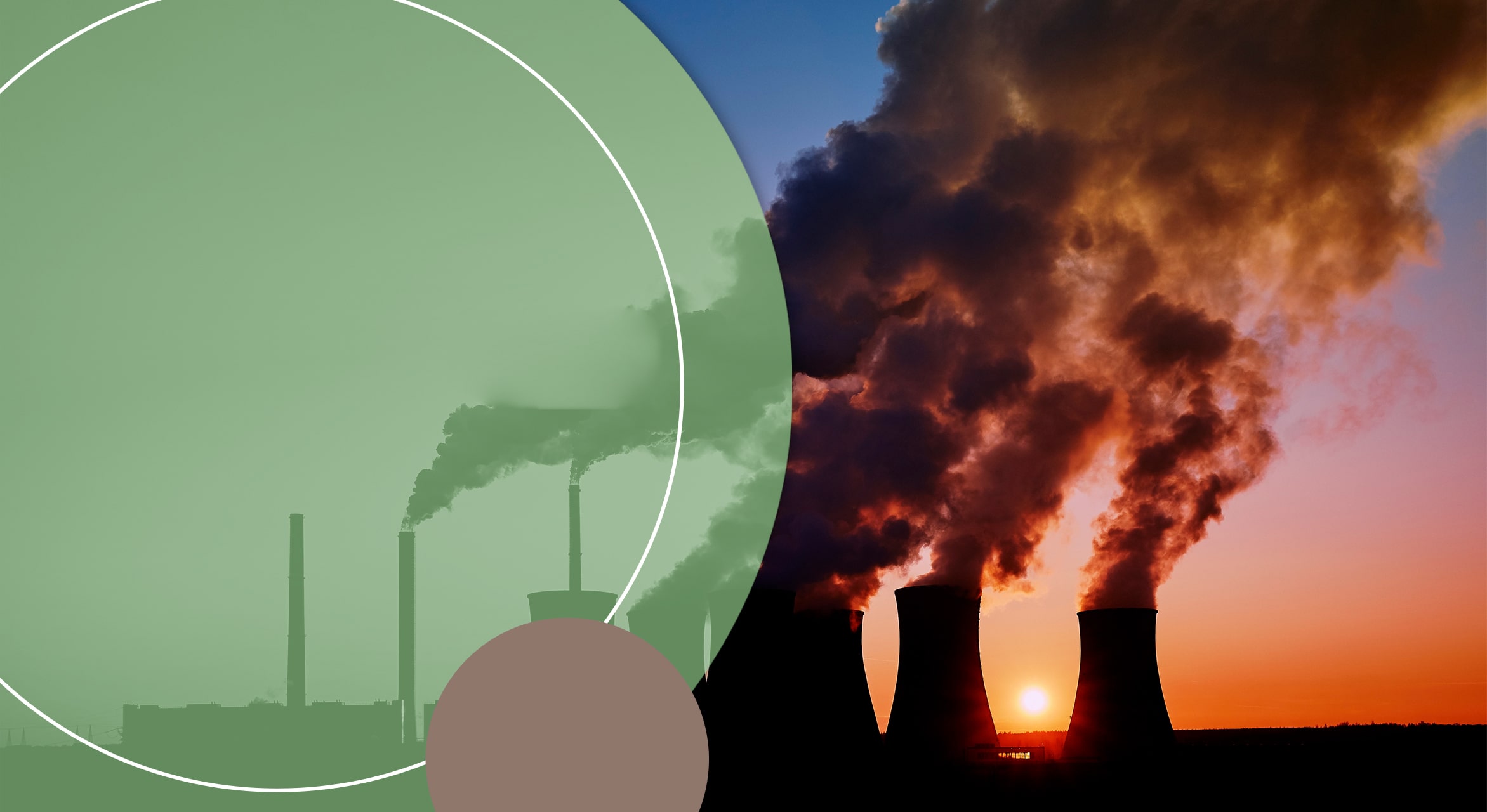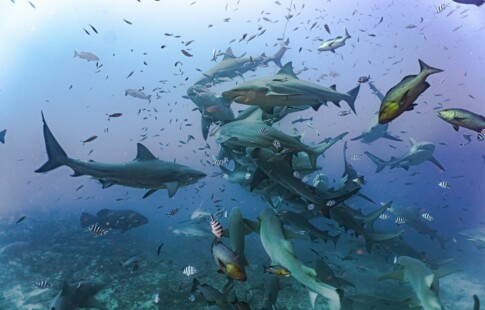
How Does Air Pollution Affect Global Warming?
We are reader-supported. When you buy through links on our site, we may earn affiliate commission.
The media has discussed air pollution in conjunction with global warming for decades. You may ask yourself, “Exactly how are the two related?” Air pollutants are the driving force behind the rising temperature of our planet.
This form of pollution is both artificial and naturally occurring. To understand the difference between the two and evaluate their role in global warming, we must first explore air pollution as a whole.
What Is Air Pollution?
Air pollution is the release of particles into the atmosphere that are harmful to human health and the planet’s equilibrium. These pollutants contribute to the production of unhealthy air that over 120 million Americans breathe every year. This consumption can cause severe respiratory issues, such as asthma and pneumonia, and other fatal effects.
It is clear that air pollution is a severe problem that we should address with urgency. The Environmental Protection Agency (EPA) initiated acts to conserve the air quality, but polluting corporations continue to find ways around the law. The EPA continues to challenge this issue due to its effects on humanity and our planet’s warming.
Air Pollution’s Effects on Global Warming
So, how does air pollution affect global warming? Scientific evidence proves that our planet’s average temperature has risen by 1°F over the past decade. This concerning data sparked an exploration of the cause, which led to an in-depth study of air pollution. These pollutants have the unique ability to trap UV radiation, thereby artificially heating the atmosphere.
Naturally, sun rays reach the Earth’s surface and reflect into the atmosphere. This causes a warming effect that helps maintain life on the planet. Air pollutants disrupt this routine by trapping the atmosphere’s heat and preventing it from dissipating. When pollutants trap energy, they cause the overall temperature of the planet to increase.
The temperature elevation is causing a significant effect on our current environment. Frequent wildfires, extended drought periods, high-category storms, plant and wildlife extinction events, and more are impacted by this one-degree temperature increase. The continuation of air pollution will cause further planetary destruction in the future.
The Direct Human Impact
Understanding how we influence the release of air pollution can help us limit global warming. We have heard on the news how our actions impact the environment. But what exactly are we doing wrong?
When we engage in un-green activities, like driving, flying, and eating red meat, we contribute to the release of short-lived, climate-altering pollutants. These pollutants include methane, black carbon, sulfate vapor, and certain types of ozone. Methane and black carbon are the two most harmful air pollutants when it comes to global warming. Releasing these pollutants is how humans directly contribute to rising global temperatures.
Black Carbon
Soot, or black carbon, is a fine particle that comes from burning fossil fuels, wood, and more. It has the highest impact on human health and contributes to air pollutant-caused mortality. This pollutant is also one of the largest impacting factors of global warming.
Black carbon is highly efficient in absorbing sun rays and distributing heat around the particles. This slows the release of heat from our atmosphere, causing a rise in global temperatures. Humans contribute the most to black carbon production through transportation activities.
Methane
Another pollutant that affects rising temperatures is methane. This pollutant does not generate direct human health impacts, but it does trigger hazardous reactions in surrounding particles. Methane is 25 times more effective at warming Earth than carbon dioxide.
Methane holds heat in the atmosphere longer than any other pollutant, making it a severe threat to global degradation. There is a limited amount of the pollutant in the atmosphere, but a slight increase will cause extensive harm to the planet.
Cows and other grazing animals release methane through gas and the management of their waste. Human beings’ high demand for meat and dairy drives farmers to overproduce cattle. In turn, this forces more methane into the atmosphere, affecting energy distribution around the planet.
Natural Air Pollutants
On top of human-produced air pollutants, there are also naturally occurring contaminants released by Earth. The typical natural air pollutants are radon, ozone, fog, mist, salt spray, and volcanic gases. Most of these elements are less of a contributing factor to global warming than human-induced ones.
Ozone is a beneficial feature of Earth’s air that protects our atmosphere. However, when it accumulates at ground level through interactions with human-made pollutants, it becomes a heat constricting pollutant. We need to limit our interference with the natural balance of Earth’s air to maintain the health and safety of the planet and humanity.
Reducing Human-Impacted Air Pollution
How does air pollution affect global warming? Now we know.
The good news is, there are various ways that society can limit artificial pollutants that cause rising temperatures. By lowering your meat consumption, especially red meat, you can reduce the release of methane into the atmosphere.
You can also engage in alternate transportation forms outside of car use, like riding your bike or taking public transportation. Reducing your consumption of new products, like fast fashion, and purchasing secondhand goods can reduce industrial black carbon emissions.
Whatever way you choose to limit human-made air pollution, know that education is the most critical step. Continue to question the pollutants released to produce the products you are buying. Also, reach out to your friends and community to brainstorm local solutions to these global problems.
Share on
Like what you read? Join other Environment.co readers!
Get the latest updates on our planet by subscribing to the Environment.co newsletter!
About the author

Jane Marsh
Starting from an early age, Jane Marsh loved all animals and became a budding environmentalist. Now, Jane works as the Editor-in-Chief of Environment.co where she covers topics related to climate policy, renewable energy, the food industry, and more.





